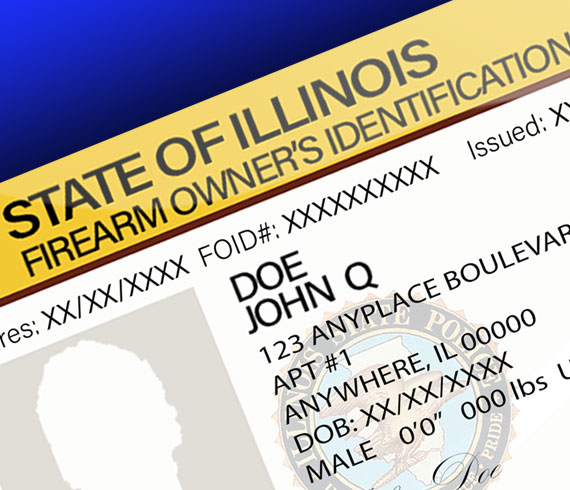Orders of protection are from time to time inappropriately filed in family law matters, often times without fully understanding the consequences of such a filing.
However, despite the legitimacy of the order of protection, it is extremely important that the Respondent understand the impact that an order of protection has on his/her ability to possess a firearm. Failing to realize this impact could result in severe criminal penalties in addition to impacting the outcome of the underlying family law matter.
Illinois vs. Federal Law
On its face, a standard order of protection form has a section explicitly dealing with firearms. In section 14.5 of the order of protection, the Court has the option of finding or not finding that the Respondent has threatened or is likely to use a firearm(s) illegally against the Petitioner. The Court also has the option to then require the respondent to turn over any and all firearms. This language seems relatively easy to understand. Either the Respondent presents a risk and must turn over his/her firearms to the designated authority in the Order, or the Respondent does not present a risk and the Order does not require the Respondent to turn over his/her firearms, right?
Wrong. The Illinois Order of Protection form fails to take into account the Federal laws which are much stricter than the findings in section 14.5 of the Order of Protection. Under the Federal Violence Against Women Act, it is a federal crime for any person subject to an Illinois Order of Protection to possess any firearm or ammunition. Respondents are not banned permanently from possessing guns, only for the time that the Order of Protection is in existence.
- More particularly, 18 U.S.C. Section 922 (g)(8) prohibits the possession of a firearm by anyone who is subject to a court order that (1) was issued after a hearing of which such person received actual notice, and at which such person had an opportunity to participate; AND
- restrains the person from harassing, stalking or threatening an intimate partner of such person or child of such intimate partner or person, or from engaging in other conduct that would place an intimate partner in reasonable fear of bodily injury to the partner or child; AND
- includes a finding that such person represents a credible threat to the physical safety of such intimate partner or child or by its terms expressly prohibits the use, attempted use, or threatened use of physical force against such intimate partner or child that would reasonably be expected to cause bodily injury.
The term intimate partner includes the spouse of the person, the former spouse of the person, an individual who is a parent of a child of the person, and an individual who cohabits or has cohabited with the person.
Therefore, even though an Illinois Order of Protection may not have detrimental findings under section 14.5 related to firearms, it is still very likely that a Respondent subject to an Order of Protection will be prevented from possessing a firearm under the Federal laws.
What To Do If Your FOID Card Is Suspended Due To An Existing Order Of Protection
If you are a Respondent subject to an Existing Order of Protection, and you receive notification that your FOID card is being suspended as a result, you are required to send your FOID card to the Illinois Firearm Bureau and turn over your firearms to a friend or family member for safekeeping. You must not have any firearms in your possession. Once the Order of Protection is either denied or is dismissed after the designated time frame within the Order, the Respondent should contact the Illinois Firearm Bureau to confirm that they received notice of the dismissal of the Order of Protection.
How to Avoid Having Your FOID Card Suspended
One alternative that may be useful to avoid having your FOID card suspended is if the parties can agree to enter a “NO CONTACT” order in the underlying family case. If the Respondent can successfully convince either the Court or the Petitioner to dismiss the Order of Protection and alternatively enter an order preventing the Respondent from contacting the Petitioner, then the Federal law should not apply. However, it is extremely important that the “NO CONTACT” order cannot have any language preventing harassment, abuse, threatened abuse, stalking, or any other prohibitions related to bodily injury. Under many circumstances, a simple prohibition from one party (or both parties) from contacting the other is sufficient to resolve the issues being complained of by the Petitioner.



